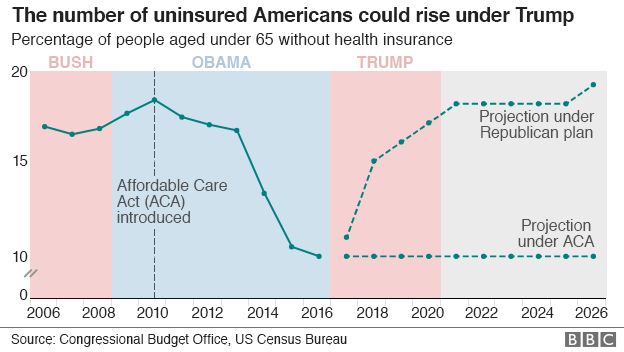Ironically, Trump's attempts to discredit and repeal Obamacare have actually made it more popular than ever. This extract from a BBC article explains how:-
Spoiler for The Rise of Obamacare:
Nobel-winning psychologist Daniel Kahneman famously pioneered the idea that people tend to fear loss twice as much as they prefer gains.
Loss aversion, he said, is when people feel the pain of losing something more than they feel the pleasure of gaining something else, which can leave some wary of taking risks. That could be why the threat of losing the Patient Protection and Affordable Care Act (ACA), known as Obamacare, has led to more support for the healthcare law than ever before.
"People are looking at what they're losing and it's not clear what they'll be gaining," says Thomas D'Aunno, director of the health policy and management at New York University's Robert F Wagner Graduate School of Public Service. An uncertain future about the country's healthcare is "playing into people's stronger attachment to the ACA", he says.
That sentiment is felt by Americans like Cathy DeLoach, who changed her mind on the ACA after her son was diagnosed with testicular cancer and her family spent $29,000 on treatment costs in 15 days. "I stayed with him in the hospital and I had a lot of time to think about how grateful I was for the Affordable Care Act," she told the BBC.
Mrs DeLoach, who did not vote for Mr Obama in 2008 and 2012, said she was not a fan of the law when it was first passed, but now worries for her son's future. "This really is something that could be so awful for so many people, and so many poor people, and it's wrong."
A recent Health Tracking Poll from the Kaiser Family Foundation found the highest level of favourability for the ACA in more than 60 tracking polls since 2010, when President Barack Obama signed it into law. At its lowest favourability in November 2013, just 33% approved of Obamacare.
The recent poll found that 48% of Americans approved of the ACA while 42% said it was unfavourable.
...and graphs like this, if they were published in America, must be pretty convincing too:-
